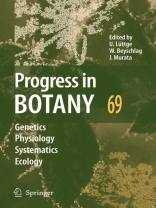With regard to global climate changes, one of our future challenges will be to develop crop plants that cope better with changing environmental conditions. Abiotic stress is estimated to be the primary cause of crop loss worldwide, with the potential to cause a reduction of more than 50% in the average yield of the main crops. Climatic extremes are known to trigger senescence processes. Many different agriculturally important traits are affected by senescence, like number and quality of seeds, timing of seed set, fruit ripening, etc. . Despite the importance of the sen- cence processes, our knowledge on the regulatory mechanisms of senescence is still poor. However, senescence is not a chaotic breakdown, but an orderly loss of normal cell functions. In contrast to aging processes which have a passive and non-regulated degenerative character (for a review, see Krupinska et al. 2003), senescence is an active and highly regulated process. Senescence can be initiated by exogenous and endogenous triggers. The most important endogenous factors inducing senescence are the age of the leaves and the age and developmental stage of the plant. The leaves of annual plants show a continuous decrease in their photosynthesis rate after full expansion (Batt and Woolhause 1975; Hensel et al. 1993). In fast-aging plants like Arabidopsis, photosynthetic capacity of the leaves decreases by 50% within 4–6 days of full leaf expansion under continuous light conditions (Hensel et al. 1993).
Spis treści
Review.- Ecophysiology: Migrations Between Different Levels of Scaling.- Genetics.- Variability of Recombination Rates in Higher Plants.- Functional Markers in Resistance Breeding.- Extranuclear Inheritance: Plastid—Nuclear Cooperation in Photosystem I Assembly in Photosynthetic Eukaryotes.- Molecular Cell Biology: Are Reactive Oxygen Species Regulators of Leaf Senescence?.- Physiology.- Application of Laser-Assisted Microdissection for Tissue and Cell-Specific Analysis of RNA, Proteins, and Metabolites.- Plasma Membrane Redox Systems: Lipid Rafts and Protein Assemblies.- Subcellular Sites of Environmental Sensing.- Oxidative Stress and Salt Tolerance in Plants.- Crassulacean Acid Metabolism: a Cause or Consequence of Oxidative Stress in Planta?.- Cuscuta spp: “Parasitic Plants in the Spotlight of Plant Physiology, Economy and Ecology”.- Ecology.- Bayesian Data—Model Integration in Plant Physiological and Ecosystem Ecology.- Quaternary Palaeoecology: Africa and its Surroundings.- The Application of Novel Optical Sensors (Optodes) in Experimental Plant Ecology.- Indirect Defence — Recent Developments and Open Questions.- Functional Differences in Soil Water Pools: a New Perspective on Plant Water Use in Water-Limited Ecosystems.- Plant Herbivore Interactions at the Forest Edge.- Getting Plant—Soil Feedbacks out of the Greenhouse: Experimental and Conceptual Approaches.












